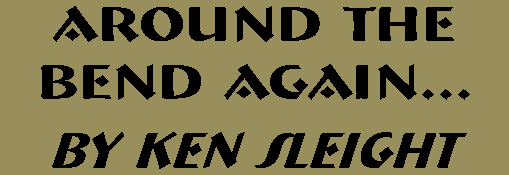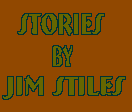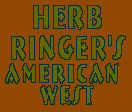

KEN REMEMBERS the 50s...
And so in the spirit of this edition of the Zephyr I search my memory, notes, and my journal for a few personal happenings in the 50’s. The horror of Sept 11 remains with us all, and now in jotting down these isolated notes I share with you too a brief sketch of my army experiences, which decidedly determined the course of my own life.
At twenty-one years of age, in 1950, I went through a hellish year, as national and international events seemed to pull me into areas in which I had little control. Distractions were many. Continuous war talk left my mind immobilized, an ominous beginning for the decade.
President Truman ordered the development of the hydrogen bomb, and in short order, on March 8, 1950 the Soviets announced that they too had possession of an atomic bomb.
I still hung on at the University of Utah - my third year. The Dean told me that I wasn’t a good student. My grade point average plummeted to a C average, and I flunked a few courses. Too much cutting of classes and hiking the mountain trails.
On a shoestring budget, I didn’t even have a car. I pondered on buying a used one, but then I asked myself, for why? I’d probably not be around much longer to enjoy or pay for it anyway. After all, some 40 percent of American households still didn't have a car either. Considering my lust for travel and wandering about, it would have lent itself to my cutting even more classes than I did.
As I said, there were many distractions. During this time, my bishop asked me to go on a mission after the school year was over. This was tempting. Wanting an assignment in Peru, I took a course in Spanish to prepare the way. I’d be able to explore Cusco and Machu Picchu, and Lake Titacaca and the hundreds of other ancient archeological ruins that I so wanted to see.
Ominous clouds lay on the horizon. U.S. Senator Joseph R. McCarthy made an ass of himself with his announcement that he held a list of 205 known card-carrying communists working in the State Department. Though he didn’t produce much, a nationwide frenzy of communist hysteria followed. People everywhere was searching under pillows and in closets for evidence that family members, friends, and acquaintances might be a bit pinko.
North Korean forces had gathered north of the 38th Parallel for an invasion of South Korea. America had grown tired of supporting the chaotic situation. Korean leader Syngman Rhee angrily took issue with the American people’s apathy, and in disgust, he pushed his own troops northward across the 38th Parallel into North Korea in order to provoke war.
On June 25, 1950, another day of infamy, Communist North Korea forces invaded South Korea crossing the 38th parallel, capturing Seoul, and the war was on. It was a "bandit raid," the President retorted. The war brought the president, as he had counted on, overwhelming support for his "police action" encounter.
That day, the most fateful day of my life, sped me down a road that I didn’t want to travel. I attended summer school at the time, the military draft loomed on the horizon, and I was at the prime age for induction.
U.N. forces completely controlled South Korea by September. By that time, thousands of troops and civilians lay dead or wounded. Then all hell broke lose again. General MacArthur sent his troops north across the 38th, all the way to the Yalu River and the border of Manchuria. At that point, Chinese communist troops joined the North Koreans, and their combined forces, some 300,000 troops, fought the U.N. back to the 38th parallel. The casualties: 15,000 marines had been trapped and 3,000 of them killed and 7,000 wounded.
On the home front, the New Deal died. Wallace F. Bennett won the race in 1950 for the Senate in beating out Elbert D. Thomas, an old Roosevelt liberal. Bennett wrote a book that year, Faith and Freedom. It surely must have helped his candidacy. He clamored for a strong national defense and later lobbied hard for the Glen Canyon dam. I voted for him then, but I regret my vote now.
The city of Bountiful, population 6,004, annexed our farm. Excitement ensued on the completion of the new sewer system and the fact that it worked. Some of us worried about sprawl. taking over the farm lands.
Nuclear tests began on Jan 27, 1951 when a B-50 dropped an atomic bomb that detonated more than a thousand feet above the desert floor of Frenchman Flat in Nevada. In the next 11 years, 100 atmospheric tests would take place, sending hazardous and life-killing radioactive dust storms all over Utah
After summer school ended, a bunch of us students took a road trip to southern Utah to explore the canyon country. In the party were Bob Waite, Jim Dean, Blaine Busenbark, Neldon Christensen, Richard Elzinga, and myself.
At Capitol Reef, we met Charles Kelly, the custodian of the park, sitting on a wooden chair next to a small shed. We sat there for a couple of hours entranced with his tall tales about the canyons. I didn’t know it then, but Kelly wrote gobs of books and articles on outlaws, old pioneer trails, and Mormon history..
We also visited Elijah Cutler Behunin’s one-room sandstone block cabin on the Fremont River. Tabitha Jane, Elijah’s wife, was a second cousin of mine. Though they departed long ago, I felt a kinship to them and their 13 children and sensed the troubles they must have endured as they pioneered the land.
Nearing Monticello, we stopped at Marie Ogden's Home of Truth Colony, a religious community that she founded in 1933, and we visited with her for a while. An accomplished musician, she played her piano for us. She told us as how she hiked to the top of nearby Shay Mountain each year to receive revelation and inspiration.
And we drove to Monticello and looked about the old flourmill erected in pioneer times by Chester and Sarah Black. I claim Sarah as another cousin of mine. This trip began shaping up as a "meet your kin" trip.
We journeyed south to Monument Valley. The sandy road proved difficult to negotiate and while the other guys were digging our stuck car out, I hiked up and over some sand dunes and came upon a Navajo family. The woman of the house, weaving a beautiful blanket, showed me other blankets that she had made and were for sale. I wished that I had the money to buy one. After a short chat, I hurried back to the car where the guys were waiting.
We drove over to Father Liebler's mission to the Navajos on the San Juan River near Bluff. At his invitation, we camped near his chapel that night. The next morning, it being Sunday, we attended his Episcopal services. We listened closely as he told us about his mission.
This great trip exerted a great influence on my later life. Blaine Busenbark enjoyed telling us about his uncle Bert Loper, the grand old man of the river. Also Jim Dean had run the river with Loper. Before our trip had ended, Jim invited me on a private trip through Lodore Canyon in the fall, and I took him up on it.
My first trip on the Colorado River system excited me greatly. The trip list: Jim Dean, Malcolm "Moki Mac" Ellingston and Al Quist, and other veteran river runners. We became life-long friends as it was such an eventful trip; I knew now what my life’s profession was destined to be.
On an evening in June, my girl friend Carleen Buchanan and I participated as a couple in a Mormon Dance Festival on the local high school grounds. We danced the squares, rounds, polkas, and waltzes. Later we would dance on the stadium grass in the All-church Dance Festival at the University of Utah in front of thousands of people. It was great fun but a bit much. Better to dance on the river bank.
Frustrated with schooling, I decided to enter the Army. I gave up my education deferment and told the draft board to place my name on the next call up. This the board did, and I was directed to report to Fort Douglas for my arraignment. My father was pissed.
The army gave me the rank of Private E-1. Lining up that first day, I endured the wait for initial dental and medical exams. Sizing up in the nude, I weighed 160 pounds and measured six feet tall. A skinny kid indeed.
By bus, rail, and shank’s pony, I made it to Fort Lewis and then to Camp Roberts, California for basic training. My new army buddies from Utah included George W. Hatch, Newell B. Ostler, Robert D. Pettit, and Rey Wiser. We had an integrated unit: whites, blacks, Hispanics, Texans and a few Mormons
At times, we were granted leave time. I wanted to spend a weekend at Sequoia and Kings Canyon National Parks and other guys wanted to go too. Therefore, I made a proposal to the officer staff, that it would be great for morale if the Army conducted a bus trip to a national park.
I was very surprised when they told me to organize the trip. We recruited two busloads of enlisted men and one officer. The eating expense was to borne by each of us. We’d camp out for one night. The people of Fresno generously gave us a banquet en route And John Muir was right when long ago he wrote, "Going to the mountains is going home." I surely felt Muir’s presence there at Sequoia and Kings Canyon.
Basic training toughened us up and rewarded us many times over. It’s a remarkable body buildup and conditioning factory. No need for conditioning-spas and the like, and it was all paid for too, and there was no need for lycra tights either. Each day of a 16-week course, we’d arrive back to the barracks exhausted. We’d take a shower and just collapse.
On graduation from basic training on March 8, 1952, I earned the rank of Private E-2. I had also applied for Officer Candidate School (OCS). Here’s a checklist of things to do: an OCS application form, high school diploma, birth certificate, transcript of college credits, fingerprint card, a security investigation, recommends from the commanding officers, referrals from an OCS Interview Board, copies of their proceedings, appraisal sheets and their recommendations - all to be sent to the Sixth Army Commanding General for approval.
After security clearance, which encompassed investigators asking my employers, friends and neighbors back home of my character and such, a directive came down that I needed an 8-week "Leaders Course" before acceptance to OCS. It was essentially a repeat of basic training with an emphasis on leadership training. This done, I was promoted to Private First Class.
At the end of the grueling course, I appeared before the Board of Review and even though I had one of the highest grades of the class, the members of the board refused my acceptance to OCS. The officer said it right out, "Private Sleight, you don’t have military bearing." The unit officers cut my rank to Private E-2 again and sent me to a replacement company.
While awaiting reassignment and licking my wounds, I had the pleasure to meet Gene Fullmer, from West Jordan, Utah, later to become the middleweight boxing champ of the world. He prepped me up and told me that sometimes he’d got clobbered too. After talking with this great guy, I wasn’t so pissed off. Later he would go to Korea.
My special orders told me to report to Camp Stoneman in Pittsburg, California not later than 2400 hours on May 22 for a May shipment to FECOM - the Far East Command.
The Army gave me 10 days of leave. Fully uniformed, my duffel in tow, I trotted out onto the highway and thumbed my way home and beat the scheduled bus by a wide margin.
On arrival home, I went to see Carleen and discovered that she had become engaged to another man, a pharmaceutical salesman. He was there when I dropped in, and we three played table tennis, made small talk, spoke of the outdoors for a while and then I left.
On returning to Camp Stoneman, our troopship departed on June 7 from San Francisco bay. It was destined for Yokohama. This was my first ocean voyage, and I was terribly seasick for the first few days. Before long, it pleasured me to watch the ever-beautiful ocean sunsets.
Arriving at Yokahama, I awaited my next assignment. Would it be Japan or Korea? The orders came through in two days. Korea it was. .
By ship, we headed to Inchon and arrived there on June 26 after encountering huge storms most of the way. I wondered why South Korea was called "The Land of the Morning Calm."
Assigned to the 48th Field Artillery of the 7th Infantry Division, I journeyed by truck to Chunchon which lay a few miles behind the front line It was a small, ravaged, dirty city that had been the site of a last-chance stand during the earlier North Korean invasion of 1950.
My job demanded that I prepare and maintain personnel records and to prepare a variety of administrative reports, rosters, and correspondence for the battalion. Later, my jobs would include classification and assignment duties involving front line personnel. Occasionally, I would be assigned duty at the front where I carted ammunition.
Our original objective in Korea, so it was said, was to help the Koreans build up their own army, and to train their officers and soldiers. But by July, more than 110,000 American soldiers had been killed, wounded or captured.
There were bitter fights for several small hills: the Jane Russell, White Horse, and Pikes Peak, which cost the U.N. forces another 9,000 casualties.
Meanwhile, the United States successfully tested a hydrogen bomb at Eniwetok, many times more powerful than the bombs Truman ordered dropped on Hiroshima and Nagasaki . It is said that the United States had an arsenal of some 1600 fission bombs, many of them located at oversees bases ready to use if necessary. That’s just what we needed in Korea, right? Wrong!
In November, we received word that Dwight Eisenhower had been elected as the new president
and Richard Nixon as vice-president. Republicans gained control of both chambers of Congress. My vote seemingly counted.
President Eisenhower promised to work for a lasting peace, and he pledged publicly in a television speech: "I shall go to Korea." He came to Korea in early December as promised. Rumors filled our unit and our hopes mounted. On Dec 5, in a press conference in Seoul, he indicated it was a risk to enlarge the war, or to engage Communist China in a larger war. "Small attacks on small hills would not end this war," he said
The winter turned cold and frigid. Our tents seemed woefully insecure. The showing of the movie, High Noon, created high entertainment for us, with Gary Cooper facing a bunch of bad guys alone after cowardly townspeople refused to help him.
I heard that back in the states, Charlie Steen had discovered uraninite ore near Moab. The uranium rush and the penny stock market raced into high gear.
Finally, on July 27, 1953, an armistice was signed providing for a cease-fire between North and South Korea. And we all celebrated and wanted to go home.
Then Paul Douglas and beautiful Jan Sterling came to Chunchon to entertain us. I shook Ms. Sterling’s hand and then for a brief moment grasped her elbow in trying to protect her from the throng of boisterous and drooling GI’s. She had a leading role in Pony Express that was filmed that same year, which also starred Charlton Heston and Rhonda Fleming.
One day, my buddy Bennie Fowler and I went down to the nearby river. We swam the river and hiked along its banks the full afternoon. We concocted a small raft of drift material and jumped aboard. Boating a river was once again so great and uplifting, and this was the most fun I had in all of my military experience. It took my thoughts back to home; the rivers in Utah awaited me
After a short distance, we alighted from the river. Making our way back up the bank, it took longer than we had thought. And then anxiously trotting back to our compound, we found ourselves very late, coming in after dark. Placed on report, absent without leave, we awaited the worst.
We weren’t court marshaled, but we were confined to the compound for a time and ordered to give an official explanation. The lieutenant asked me "Did you not know you were walking through mine fields?" Startled, I pled ignorance, but it would have been futile to try to tell him why we did what we did. He wouldn’t understand the excitement and love I have for rivers. Word came that Colonel Kimmett had frozen my scheduled promotion to sergeant.
Then I agitated to leave Korea, as the army didn’t need me any more. Homesickness sank in and I had to get the hell out of there. Even an R&R to Japan didn’t help much, but it enabled me to stay the course.
My day to leave Korea soon arrived, and I hurried to complete the tasks of my job. Before I left, our officers called our group together, and in a spirit of hilarity, they awarded me my Sergeant stripes as a farewell gift. With great ceremony, I happily pinned them on.
Our ship pulled into the harbor at Seattle, the first troopship that alighted there since the end of the war. The citizenry made a big fuss: flags were waving; and little ladies, quite exposed, waved their delicacies. It was good to be back in America.
On returning home, I bought my first car. I set my course, and for a year I traveled continuously the paved and dirt roads of Utah, and I boated the rivers and hiked the many canyons and never became satiated with it at all.








